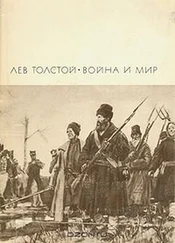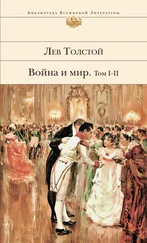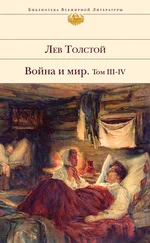| "Despite my great respect for old Kutuzov," he continued, "we should be a nice set of fellows if we were to wait about and so give him a chance to escape, or to trick us, now that we certainly have him in our hands! |
- Несмотря на мое полное уважение к старому Кутузову, - продолжал он, - хороши мы были бы все, ожидая чего-то и тем давая ему случай уйти или обмануть нас, тогда как теперь он верно в наших руках. |
| No, we mustn't forget Suvorov and his rule-not to put yourself in a position to be attacked, but yourself to attack. |
Нет, не надобно забывать Суворова и его правила: не ставить себя в положение атакованного, а атаковать самому. |
| Believe me in war the energy of young men often shows the way better than all the experience of old Cunctators." |
Поверьте, на войне энергия молодых людей часто вернее указывает путь, чем вся опытность старых кунктаторов. |
| "But in what position are we going to attack him? |
- Но в какой же позиции мы атакуем его? |
| I have been at the outposts today and it is impossible to say where his chief forces are situated," said Prince Andrew. |
Я был на аванпостах нынче, и нельзя решить, где он именно стоит с главными силами, - сказал князь Андрей. |
| He wished to explain to Dolgorukov a plan of attack he had himself formed. |
Ему хотелось высказать Долгорукову свой, составленный им, план атаки. |
| "Oh, that is all the same," Dolgorukov said quickly, and getting up he spread a map on the table. "All eventualities have been foreseen. If he is standing before Brunn..." |
- Ах, это совершенно всё равно, - быстро заговорил Долгоруков, вставая и раскрывая карту на столе. - Все случаи предвидены: ежели он стоит у Брюнна... |
| And Prince Dolgorukov rapidly but indistinctly explained Weyrother's plan of a flanking movement. |
И князь Долгоруков быстро и неясно рассказал план флангового движения Вейротера. |
| Prince Andrew began to reply and to state his own plan, which might have been as good as Weyrother's, but for the disadvantage that Weyrother's had already been approved. |
Князь Андрей стал возражать и доказывать свой план, который мог быть одинаково хорош с планом Вейротера, но имел тот недостаток, что план Вейротера уже был одобрен. |
| As soon as Prince Andrew began to demonstrate the defects of the latter and the merits of his own plan, Prince Dolgorukov ceased to listen to him and gazed absent-mindedly not at the map, but at Prince Andrew's face. |
Как только князь Андрей стал доказывать невыгоды того и выгоды своего, князь Долгоруков перестал его слушать и рассеянно смотрел не на карту, а на лицо князя Андрея. |
| "There will be a council of war at Kutuzov's tonight, though; you can say all this there," remarked Dolgorukov. |
- Впрочем, у Кутузова будет нынче военный совет: вы там можете всё это высказать, - сказал Долгоруков. |
| "I will do so," said Prince Andrew, moving away from the map. |
- Я это и сделаю, - сказал князь Андрей, отходя от карты. |
| "Whatever are you bothering about, gentlemen?" said Bilibin, who, till then, had listened with an amused smile to their conversation and now was evidently ready with a joke. "Whether tomorrow brings victory or defeat, the glory of our Russian arms is secure. |
- И о чем вы заботитесь, господа? - сказал Билибин, до сих пор с веселой улыбкой слушавший их разговор и теперь, видимо, собираясь пошутить. - Будет ли завтра победа или поражение, слава русского оружия застрахована. |
| Except your Kutuzov, there is not a single Russian in command of a column! |
Кроме вашего Кутузова, нет ни одного русского начальника колонн. |
| The commanders are: Herr General Wimpfen, le Comte de Langeron, le Prince de Lichtenstein, le Prince, de Hohenlohe, and finally Prishprish, and so on like all those Polish names." |
Начальники: Неге g?n?ral Wimpfen, le comte de Langeron, le prince de Lichtenstein, le prince de Hohenloe et enfin Prsch... prsch... et ainsi de suite, comme tous les noms polonais. [Вимпфен, граф Ланжерон, князь Лихтенштейн, Гогенлое и еще Пришпршипрш, как все польские имена.] |
| "Be quiet, backbiter!" said Dolgorukov. "It is not true; there are now two Russians, Miloradovich, and Dokhturov, and there would be a third, Count Arakcheev, if his nerves were not too weak." |
- Taisez vous, mauvaise langue, [Удержите ваше злоязычие.] - сказал Долгоруков. - Неправда, теперь уже два русских: Милорадович и Дохтуров, и был бы 3-й, граф Аракчеев, но у него нервы слабы. |
| "However, I think General Kutuzov has come out," said Prince Andrew. "I wish you good luck and success, gentlemen!" he added and went out after shaking hands with Dolgorukov and Bilibin. |
- Однако Михаил Иларионович, я думаю, вышел, -сказал князь Андрей. - Желаю счастия и успеха, господа, - прибавил он и вышел, пожав руки Долгорукову и Бибилину. |
| On the way home, Prince Andrew could not refrain from asking Kutuzov, who was sitting silently beside him, what he thought of tomorrow's battle. |
Возвращаясь домой, князь Андрей не мог удержаться, чтобы не спросить молчаливо сидевшего подле него Кутузова, о том, что он думает о завтрашнем сражении? |
| Kutuzov looked sternly at his adjutant and, after a pause, replied: |
Кутузов строго посмотрел на своего адъютанта и, помолчав, ответил: |
| "I think the battle will be lost, and so I told Count Tolstoy and asked him to tell the Emperor. |
- Я думаю, что сражение будет проиграно, и я так сказал графу Толстому и просил его передать это государю. |
| What do you think he replied? |
Что же, ты думаешь, он мне ответил? |
| 'But, my dear general, I am engaged with rice and cutlets, look after military matters yourself!' Yes... That was the answer I got!" |
Eh, mon cher g?n?ral, je me m?le de riz et des et c?telettes, m?lez vous des affaires de la guerre. [И, любезный генерал! Я занят рисом и котлетами, а вы занимайтесь военными делами.] Да... Вот что мне отвечали! |
| CHAPTER XII |
XII |
| Shortly after nine o'clock that evening, Weyrother drove with his plans to Kutuzov's quarters where the council of war was to be held. |
В 10-м часу вечера Вейротер с своими планами переехал на квартиру Кутузова, где и был назначен военный совет. |
| All the commanders of columns were summoned to the commander in chiefs and with the exception of Prince Bagration, who declined to come, were all there at the appointed time. |
Все начальники колонн были потребованы к главнокомандующему, и, за исключением князя Багратиона, который отказался приехать, все явились к назначенному часу. |
| Weyrother, who was in full control of the proposed battle, by his eagerness and briskness presented a marked contrast to the dissatisfied and drowsy Kutuzov, who reluctantly played the part of chairman and president of the council of war. |
Вейротер, бывший полным распорядителем предполагаемого сражения, представлял своею оживленностью и торопливостью резкую противоположность с недовольным и сонным Кутузовым, неохотно игравшим роль председателя и руководителя военного совета. |
| Weyrother evidently felt himself to be at the head of a movement that had already become unrestrainable. |
Вейротер, очевидно, чувствовал себя во главе.движения, которое стало уже неудержимо. |
| He was like a horse running downhill harnessed to a heavy cart. |
Он был, как запряженная лошадь, разбежавшаяся с возом под гору. |



